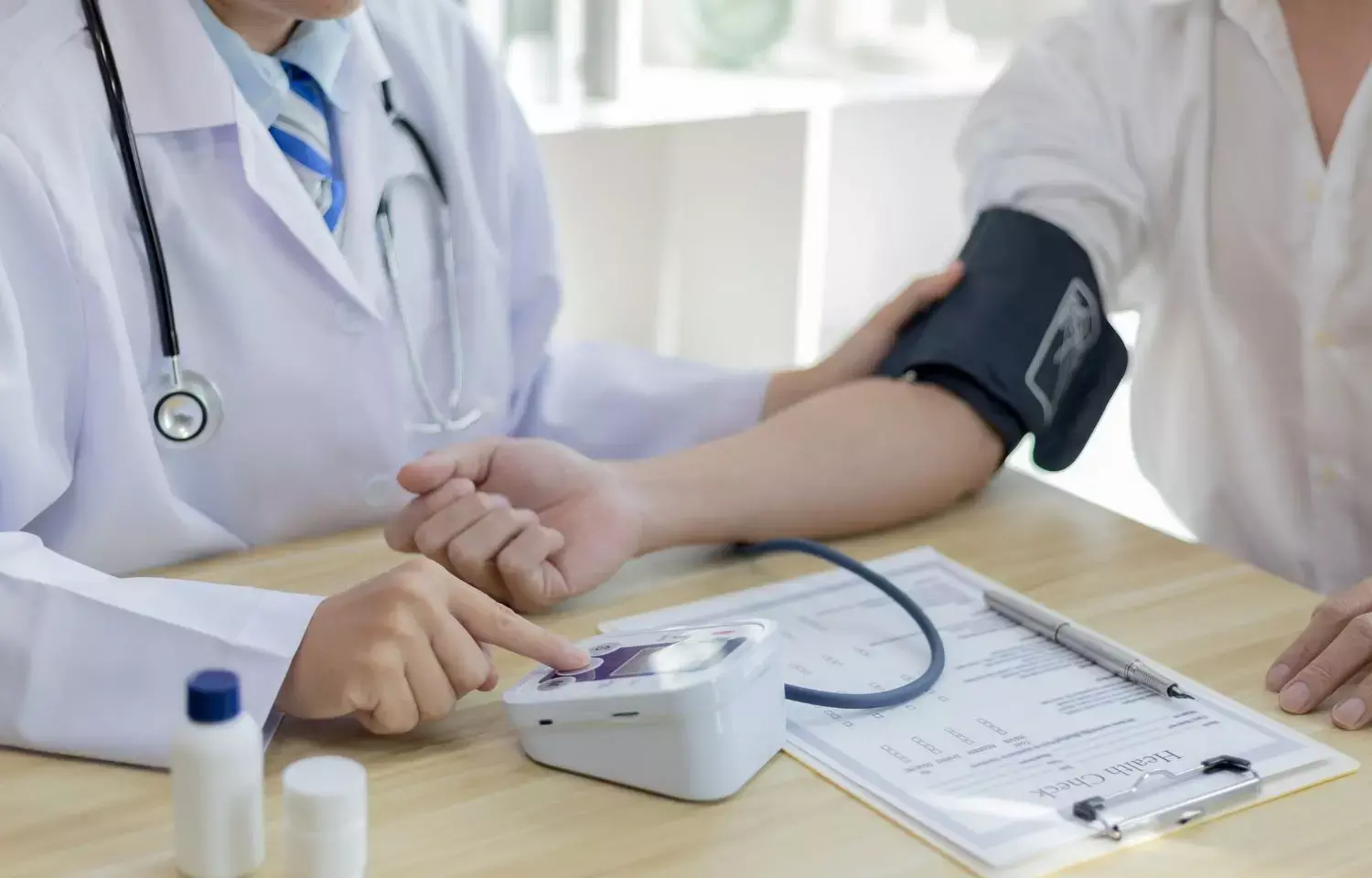- Home
- Medical news & Guidelines
- Anesthesiology
- Cardiology and CTVS
- Critical Care
- Dentistry
- Dermatology
- Diabetes and Endocrinology
- ENT
- Gastroenterology
- Medicine
- Nephrology
- Neurology
- Obstretics-Gynaecology
- Oncology
- Ophthalmology
- Orthopaedics
- Pediatrics-Neonatology
- Psychiatry
- Pulmonology
- Radiology
- Surgery
- Urology
- Laboratory Medicine
- Diet
- Nursing
- Paramedical
- Physiotherapy
- Health news
- Fact Check
- Bone Health Fact Check
- Brain Health Fact Check
- Cancer Related Fact Check
- Child Care Fact Check
- Dental and oral health fact check
- Diabetes and metabolic health fact check
- Diet and Nutrition Fact Check
- Eye and ENT Care Fact Check
- Fitness fact check
- Gut health fact check
- Heart health fact check
- Kidney health fact check
- Medical education fact check
- Men's health fact check
- Respiratory fact check
- Skin and hair care fact check
- Vaccine and Immunization fact check
- Women's health fact check
- AYUSH
- State News
- Andaman and Nicobar Islands
- Andhra Pradesh
- Arunachal Pradesh
- Assam
- Bihar
- Chandigarh
- Chattisgarh
- Dadra and Nagar Haveli
- Daman and Diu
- Delhi
- Goa
- Gujarat
- Haryana
- Himachal Pradesh
- Jammu & Kashmir
- Jharkhand
- Karnataka
- Kerala
- Ladakh
- Lakshadweep
- Madhya Pradesh
- Maharashtra
- Manipur
- Meghalaya
- Mizoram
- Nagaland
- Odisha
- Puducherry
- Punjab
- Rajasthan
- Sikkim
- Tamil Nadu
- Telangana
- Tripura
- Uttar Pradesh
- Uttrakhand
- West Bengal
- Medical Education
- Industry
Mindfulness training can effectively reduce high BP

A new study published in Journal of the American Heart Association suggests that a mindfulness-based programme tailored for people with high blood pressure (BP) resulted in clinically significant reductions in systolic pressure when compared to improved standard care.
A major risk factor for cardiovascular disease is hypertension. Despite the availability of efficient pharmacological and lifestyle interventions, blood pressure regulation in the United States remains subpar. Training in mindfulness could be a fresh way to enhance blood pressure regulation. In order to compare the benefits of improved usual care control and mindfulness-based blood pressure reduction (MBBP) on unattended office systolic blood pressure, Eric Loucks and colleagues carried out this study.
A parallel-group phase 2 randomized clinical study that lasted from June 2017 to November 2020 was one of the methods used. Follow-up lasted for six months. Data analysts and outcome assessors were unaware of the groupings. Participants' unsupervised office blood pressure was high (120/80 mm Hg). We divided our 201 participants into two groups: improved usual care control (n=100) and MBBP (n=101). A mindfulness-based programme for high blood pressure is called MBBP. 17.4% of follow-ups were lost. The main result was a change in unattended office systolic blood pressure after six months.
The key findings of this study were:
There were 201 participants in all (58.7% of whom were women, 81.1% of whom were non-Hispanic White, and whose mean age was 59.5 years).
Results revealed that MBBP outperformed the control group by 4.5 mm Hg at 6 months (95% CI, 9.0 to 0.1 mm Hg) and was related with a 5.9 mm Hg decrease (95% CI, 9.1 to 2.8 mm Hg) in systolic BP from baseline.
Sedentary behavior (350.8 sitting minutes per week [95% CI, 636.5 to 65.1] sitting minutes per week), the Dietary Approaches to Stop Hypertension diet (0.32 score [95% CI, 0.04 to 0.67]), and mindfulness (7.3 score [95% CI, 3.0-11.6]) were plausible pathways with evidence to be altered by MBBP vs control.
Reference:
Loucks, E. B., Schuman‐Olivier, Z., Saadeh, F. B., Scarpaci, M. M., Nardi, W. R., Proulx, J. A., Gutman, R., King, J., Britton, W. B., & Kronish, I. M. (2023). Effect of Adapted Mindfulness Training in Participants With Elevated Office Blood Pressure: The MB‐BP Study: A Randomized Clinical Trial. In Journal of the American Heart Association. Ovid Technologies (Wolters Kluwer Health). https://doi.org/10.1161/jaha.122.028712
Neuroscience Masters graduate
Jacinthlyn Sylvia, a Neuroscience Master's graduate from Chennai has worked extensively in deciphering the neurobiology of cognition and motor control in aging. She also has spread-out exposure to Neurosurgery from her Bachelor’s. She is currently involved in active Neuro-Oncology research. She is an upcoming neuroscientist with a fiery passion for writing. Her news cover at Medical Dialogues feature recent discoveries and updates from the healthcare and biomedical research fields. She can be reached at editorial@medicaldialogues.in
Dr Kamal Kant Kohli-MBBS, DTCD- a chest specialist with more than 30 years of practice and a flair for writing clinical articles, Dr Kamal Kant Kohli joined Medical Dialogues as a Chief Editor of Medical News. Besides writing articles, as an editor, he proofreads and verifies all the medical content published on Medical Dialogues including those coming from journals, studies,medical conferences,guidelines etc. Email: drkohli@medicaldialogues.in. Contact no. 011-43720751


